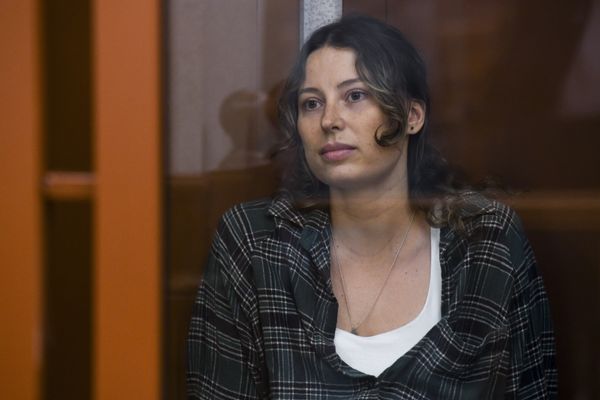
MOSCOW — A Russian court extended the detention of Wall Street Journal reporter Evan Gershkovich for another three months on Tuesday.
The American journalist faces unsubstantiated charges of espionage.
Tuesday's ruling means Gershkovich will remain in pretrial detention in Moscow's Lefortovo prison until at least Aug. 30.
Gershkovich's parents traveled from the United States to Moscow and were reportedly allowed to attend the closed court hearing.
Russian security agents detained Gershkovich while he was on a reporting assignment in Russia's Ural mountains in March.
The Kremlin says the American was caught "red-handed," but provided no evidence.
Gershkovich and the Wall Street Journal vehemently reject the spying allegations — noting that Gershkovich was an accredited journalist working in Russia at the time of his detention.
The U.S. Embassy in Moscow issued a statement Tuesday saying it was "deeply concerned" by Tuesday's decision to extend Gershkovich's pretrial detention. "This follows last week's denial of the Embassy's request for a consular visit to Evan Gershkovich, marking the second time Russian authorities have unjustifiably denied consular access in this case," the statement said. "The United States strongly objects to Russia's ongoing denial of consular access to Mr. Gershkovich. We reiterate that the claims against him are baseless and call for Mr. Gershkovich's immediate release."
The U.S. government has designated Gershkovich as "wrongfully detained."
The White House has also linked Gershkovich's case with that of Paul Whelan — a former U.S. Marine who was sentenced to 15 years in prison on espionage charges the U.S. also argues are bogus.
In an interview with Russian state television earlier this month, Foreign Minister Sergey Lavrov said White House officials were in touch with a top Kremlin adviser, sending "one and the same signal" in an effort to secure the Americans' release.
Russian officials have bristled at perceived pressure from Washington — arguing it interferes with the legal process and does more harm than good.
"Usually we've found that it's counterproductive in such a delicate situation as returning wrongfully detained Americans home to make public all of the work that we're doing to secure their release," State Department spokesperson Matthew Miller told reporters in Washington on Monday.
Russia's Foreign Ministry twice blocked consular access to Gershkovich — linking the move to the U.S. not issuing American visas to Russian journalists traveling with Lavrov to the United Nations in New York in April.
NPR's diplomatic correspondent Michele Kelemen contributed to this report from Washington, D.C.







